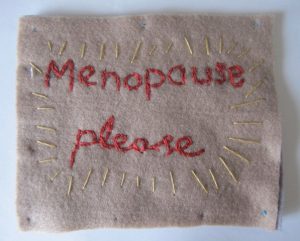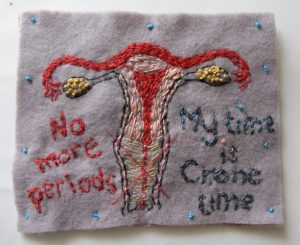Is late menopause a problem?
If you’re “blessed” with a regular period well into your fifties, do you welcome late menopause with open arms or curse your monthly bleed?
What is the definition of late menopause?
Menopause is defined as not having a period for twelve consecutive months, which for most women occurs between 45 and 55 years.
If you’ve not begun menopause by the age of 55, it’s technically deemed ‘late-onset’ (but usually just referred to as late menopause).
Advantages of late menopause
There’s mostly good news for women still menstruating in their mid-50’s. Health-wise, all that lovely oestrogen continues to protect your heart and bones. This decreases the age-related risks of heart attacks and stroke, so you may live longer. It also can delay the onset of osteoporosis.
Oestrogen is the natural youth hormone, which means your sex drive should be ongoing (though it may still be vulnerable to high stress and other issues) and skin continues to maintain its elasticity (so you have fewer wrinkles).
Disadvantages of late menopause
With the average age of menarche (first period) being around 12 years old, after more than 43 years of menstruating the novelty can certainly wear off. Many women who have a delayed menopause are well and truly over the monthly hormonal rollercoaster and bleeding.
Heavy or too frequent periods, over an extended time can cause iron deficiency anaemia, fatigue and increased mood swings. Heavy or unusual bleeding at any age should always be checked out by your doctor, but especially when you’re over fifty.
While oestrogen may help us look youthful, in some cases prolonged exposure increases the risk of breast, ovarian and uterine cancers. This is particularly significant when there’s been no pause in periods, such as no pregnancies or breastfeeding.
Let your doctor know you’re still menstruating (most will assume you’ve gone through menopause already unless you mention it) and keep up to date with breast and gynaecological screening.
“While reproductive cancers, particularly breast cancer, are a concern for those who experience a late menopause, “those are rarer than cardiovascular disease.” Dr Ellen B. Gold

Menopause talisman Deb K Williams
What causes late menopause?
The majority of women who experience late menopause, do so for genetic reasons. Usually your mother or other female relatives did as well. However, with the previous popularity of hysterectomies, you mightn’t be aware if your mother was genetically predisposed to have a late menopause.
There may be environmental factors, such as increased exposure to xenooestrogens through chemical exposure in the water and food chain, impacting your hormonal system. Carrying extra body fat can also increase oestrogen levels. Keep in mind that some thin or average sized women can store fat less visibly, such as around internal organs. Regardless of the cause, a blood test can indicate if your oestrogen levels are abnormally high.
Reproductive hormones are only one part of the endocrine system that can determine when menopause will occur, so it’s worth investigating thyroid and adrenal function if menopause is delayed (or early).
It’s important your GP (and gynaecologist or endocrinologist if you have one) knows that you’re still bleeding regularly in your mid-fifties or later to rule out any pathological causes and remain vigilant for increased cancer risks.

Menopause talisman Deb K Williams
Need help navigating menopause? Gill Stannard is a naturopath who has been working with women for more than 26 years. She offers in person consultations in Sydney and Melbourne, and by Skype around the world.
More articles about menopause
Natural remedies to stop hot flushes.
Similar Posts:
Social Share
One Comment
Leave a Reply
You must be logged in to post a comment.






Pingback: Gill Stannard » Changing the narrative around menopause